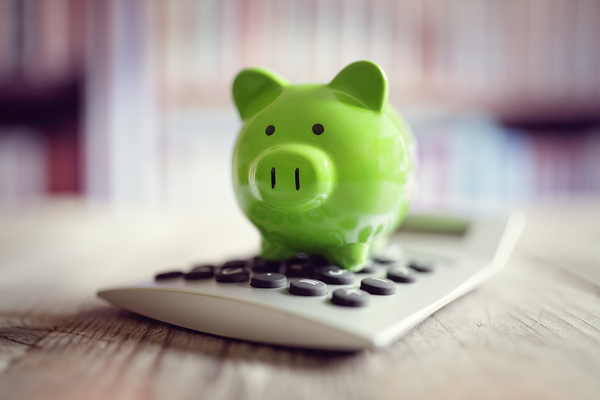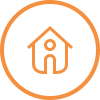How to Budget to Buy Your First House
 Have you done the math behind your first home purchase?
Have you done the math behind your first home purchase?You are buying a house. Congratulations! Before the party begins, you will need to consider how you can actually afford that house. Do you have a down payment? How much can you afford to pay on a mortgage every month? Consider your budget carefully, and you will set yourself up for successful home ownership.
Look at the Housing Market
Before you start dreaming, take a look at the housing market and see how buying a house in your area might be feasible for you.
- Can you buy a foreclosure?
- Are there a lot of homes with suites to help with mortgage payments?
- What neighborhoods are cheap but looking like they will appreciate in value?
- Can you move to a suburb or a smaller town to save on your mortgage?
Look at all of your housing options before you buy to reduce your overall home purchase price.
 Making an imaginary mortgage payment will help you decide what you can afford.
Making an imaginary mortgage payment will help you decide what you can afford.Make an Imaginary Mortgage Payment
Take a look at your current housing budget. Consider all of the extras you pay now. You should add in your utilities, homeowners dues, taxes, insurance and everything else that home ownership involves. Now, create a list of any extras you will need to pay at your new home, including your cost to repair and improve your new home. Look at your current monthly housing budget. Is it above or below this total cost? If the mortgage and associated costs of your new home seem very high compared to your current housing budget, and you have no wiggle room in your current budget, consider how you could reduce the cost of buying a new home. You could:
- Increase your down payment.
- Reduce your overall housing cost by purchasing a less expensive home.
- Find a house that has fewer extra expenses, such as condo fees.
- Increase your income by finding a home with a suite which can be rented out.
Make a Mortgage Payment to Create a Down Payment
If you would like to try on a mortgage payment for size, use this to help build up your down payment. Every month, put aside the amount that you would spend on a mortgage payment in the future. This is especially helpful for those who are currently living in a low rent situation, such as a home with roommates or parents. Lenders like to see a consistent pattern of savings, and you can try on your mortgage payment for size. You might be surprised by how quickly you can get together enough for a sizable down payment by using this method.
Consider Your Debt to Income Ratio
Do your monthly car payments, student loan payments, and credit card bills add up to more than 50 percent of your income? If so, you have a high debt to income ratio. This is a red flag for lenders, who worry about adding more debt to your monthly load.
If you have a high debt to income ratio, focus on paying down your debts before you save for your mortgage. According to BankRate, "paying off debt tops saving in terms of priorities because of the interest payments on the debt, which exceeds the amount of interest (you) can earn on (your) savings." Paying off debt will make you much more attractive to lenders, and if you pay down your debts with the same amount that you would pay on your mortgage or save for your down payment, then you will be well on your way to a better credit rating.
Improve Your Credit Rating
Getting a mortgage is connected to your savings, but it is also based on your history as a consumer and your ability to manage debt. Before you take on a mortgage, you will need to improve your credit rating so that you can get a mortgage in the first place. Pay off overdue bills, pay your bills on time, and make sure that you have less than 30 percent of the maximum on every card or loan.
At Open for Homes, we are here to help you buy your first house or upgrade your existing home. We know that you need the right information to help you make that decision. Take a look at the blog at Open For Homes and see how we can help you find a home and budget for it as well.

